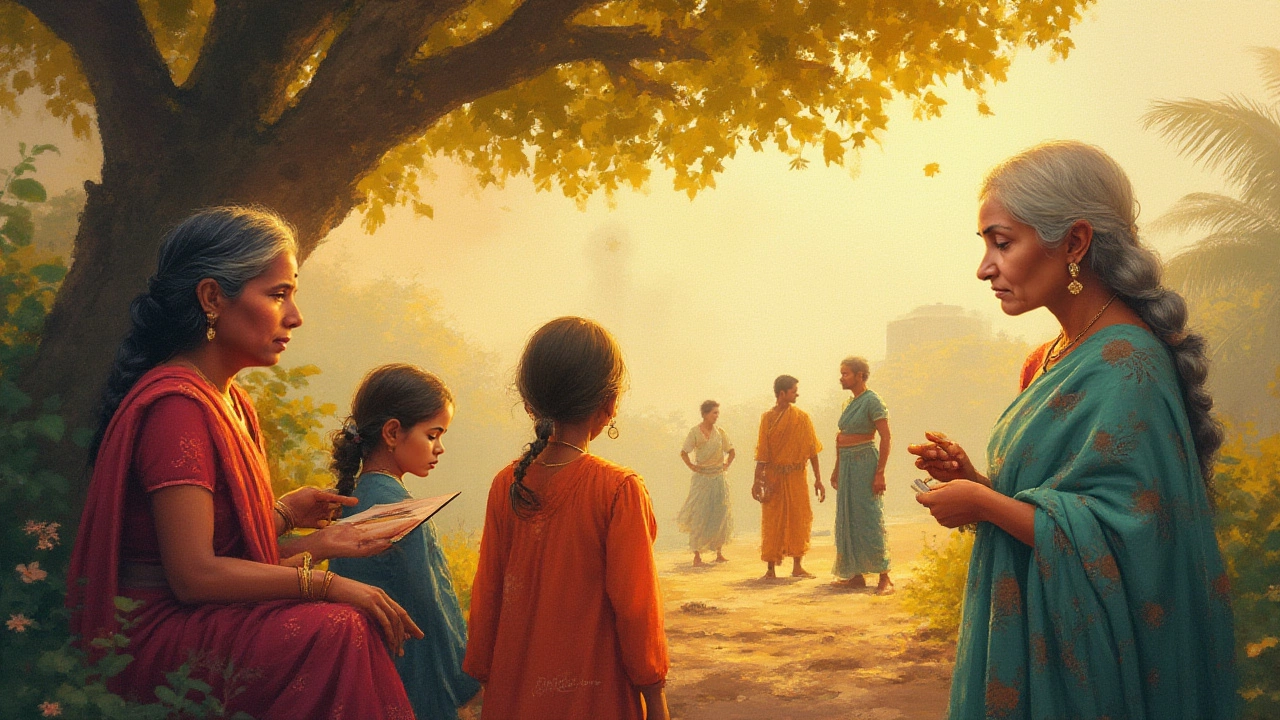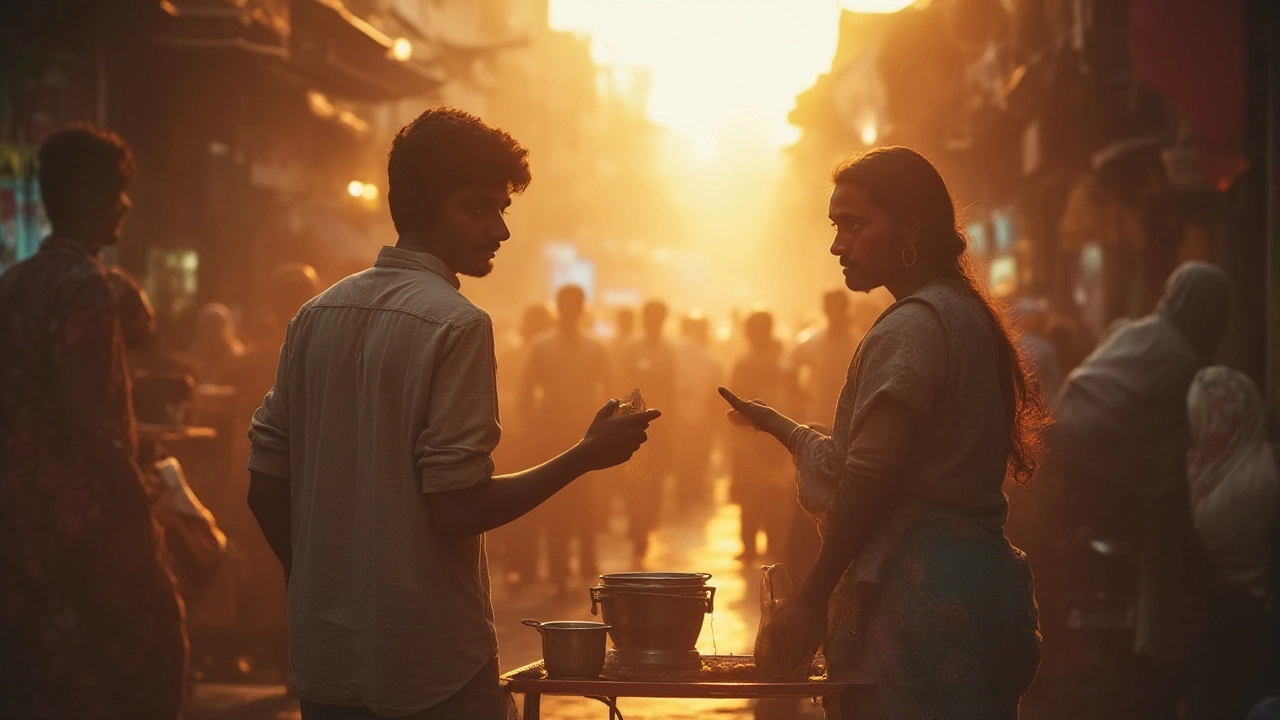
One word. That’s all it takes to unlock centuries of debate, desire, and obsession. All you have to say is “power”—and everyone starts picturing something different. Is it money, control, courage, love, respect, or something wild and untamable like freedom? This one word can make world leaders shake, start revolutions, or—even more mysteriously—change your own life in the tiniest, most subtle ways. Growing up in Mumbai, I used to wonder about what it really meant when people called someone “powerful.” Was it the businessman with the big car? The mother who quietly holds together the family empire of relatives? Or my friend Aryan, who never raises his voice but always gets everyone moving? Power often slips through the definitions we’ve learned. The truth is, the real meaning of power—what it is, how we use it, how we lose it, and why it matters—comes down to something far deeper and more personal than you’d expect.
The Essence: Power in One Word
If you could choose only one word to describe power, what would it be? Across cultures, century after century, thinkers from Plato to Oprah have argued about it. But if we slice through history, politics, myths, and philosophies, one word stands tall: influence. Anyone can command, control, or make noise, but pure power is the ability to influence—whether you sway opinions, spark action, or move emotions. Some of the most unforgettable shifts in history didn’t come from kings tossing down orders. They were sparked by everyday people whose words, ideas, or actions rippled out like waves: think of Mahatma Gandhi’s salt march, Greta Thunberg’s school strikes, or even the viral Mumbai dance challenge that brought strangers together. Influence isn’t always loud. Often, it’s the quiet shifts that reroute the whole river. You see it in households when someone sets a mood by simply being calm or joyful. It ripples out into friend groups, work teams, or even whole cities. Influence stacks up through trust, empathy, and the small but mighty actions of ordinary days.
What’s fascinating is how power keeps changing faces. In the early 20th century, it was often about physical strength and “might makes right.” Later, brains, charm, or even information became weapons of power. Now, with a tap on your phone, anyone can become a trendsetter. There’s even a psychological quirk called the “Power Paradox”—studies show people crave control, but the more they bully, manipulate, or force others, the less real influence they end up holding. True power, at its core, is when people want to listen, not when they’re forced to obey. Have you ever noticed how the best leaders in your circle aren’t the loudest or the bossiest? They’re the ones people naturally turn to for advice or direction. That’s the fingerprint of influence in action.
Types of Power: Not All Influence Looks the Same
Power isn’t some one-size-fits-all hammer. It has shades and flavors—think about French philosopher Bertrand Russell’s types of power. There’s power by force, like a police officer’s authority. There’s economic power, which makes people dance to the tune of money. But there’s also something softer: referent power, built on respect or affection; expert power, rooted in knowledge; and network power, from the simple magic of being well-connected. In Mumbai, you’ll see these blend together a hundred ways a day. Your auntie who sorts out every family feud? That’s referent power. The friend who fixes everyone’s tech issues? Expert power. The chaiwala who knows every politician’s favorite drink? Network power.
Sometimes these powers overlap and sometimes they clash. Look at any workplace—there’s the manager with “official” authority, but then there’s the office joker who keeps morale high, or the quiet worker everyone trusts with secrets. All are powerful in their own lanes. History is full of figures with hardly any official authority but who shaped the world anyway. Rani Lakshmibai, for instance, became a symbol of resistance not because she owned armies, but because she inspired them. Influence can spark out of creativity, kindness, knowledge, money, or even sheer stubbornness. It’s not only politicians or bosses who wield power; it’s teachers, artists, caregivers, even the shy friend who reminds the group to check on each other. This diversity means there’s a form of power for everyone—even if you don’t recognize your own yet.

How Power Works: Fact, Psychology, and the Real World
Scientists and psychologists have dug deep into what makes power tick. They’ve found something surprising: power isn’t an object or a token to be passed around. It’s more like a current—created and felt between people. Oxford University’s classic study in 2008 showed that people who felt powerful made quicker decisions and took more risks, yet they were prone to missing crucial details. Power rewires how we see possibilities and dangers. Meanwhile, psychologist Dacher Keltner has argued power is “the ability to alter another person’s condition or state of mind.” But here’s the bittersweet twist: when people feel powerful, they sometimes lose empathy, thinking less about how others feel. That’s why true, lasting power is often built on compassion and listening, not just ambition.
In the world of politics and social movements, power can sometimes be measured in numbers or laws changed. But really, it often starts with a single idea or a story that catches fire. Think about the powerful story behind #MeToo or the way one protest turned into a string of changes for Mumbai’s plastic bag ban. Stories, symbols, and emotions are invisible levers of influence. Even in families or small groups, power isn't just about hierarchy—sometimes teenagers hold more sway over dinner plans than parents do! You’ll also find soft power—first called out by Joseph Nye—which is the power to attract and seduce, seen when countries or brands win hearts through culture or lifestyle instead of threats or cash. Bollywood has powered India’s cultural sway across continents, not by force, but by capturing imagination and dreams. Power can even come from vulnerability. Sharing struggles, mistakes, or emotions openly doesn’t weaken you; in many cases, it makes others trust and follow you more. So, the power you hold might not look like what you expect—but it’s always there, shifting, invisible, real.
Building Your Power: Steps, Obstacles, and Surprising Tips
Think you have no power? Think again. You don’t need a shiny position or a viral hashtag. You start building influence with just two things: knowing your strengths, and learning how to connect. Here’s what helps:
- Sharpen your strengths: Focus on what you do best, whether it’s storytelling, calming a crowd, or making quick decisions. The more you polish your natural talents, the more others take notice.
- Earn trust: Power is sticky—it sticks best when people trust you. That starts with keeping promises, listening, and cheering others on.
- Speak up: Share your ideas—even if your voice shakes. One Mumbai university found that students who gave presentations, no matter how awkward, wound up with more respect from classmates than silent geniuses did.
- Network purposely: Spend time with different people; your next big opportunity might not come from your best friend, but from someone you talked to at a bookshop.
- Know your values: People are drawn to those who have a “why.” If you stand for something (honesty, fairness, creativity), you’ll attract followers—whether it’s two people or two million.
- Learn from failure: The most powerful people I know in Mumbai—chefs, designers, or social workers—got there by stumbling and starting again. Each mistake adds to your story and your influence.
There are obstacles, of course. Gender bias, old boys’ clubs, “who-you-know” politics, or family expectations can seem massive. But there are always gaps—small cracks—where a new kind of influence slips in. During the Covid pandemic, some of the most powerful voices were doctors and nurses sharing confident, caring updates on Instagram. They weren’t famous before, but their influence grew from showing up, telling the truth, and delivering help when people needed it most. You don’t have to bulldoze the whole system. Start with the power you have—your skills, your voice, your unique stories—right where you are.

The Double-Edged Sword: Dangers and Ethics of Power
Power isn’t just about inspiring novels or setting world records. Like fire, it can warm or destroy. Unchecked power can twist into control, bullying, or even oppression. I’ve seen parents, teachers, or managers turn a love of influence into micromanagement, forgetting what it felt like to be on the other side. Think about the “Stanford Prison Experiment”—a classic study where volunteers given power over others began to mistreat their peers within days, simply because the system told them they could. This isn’t just a Western story; power can warp anywhere. In Mumbai, I’ve seen neighborhood leaders start with good intentions and wind up caring more about their image than their people.
So, how do you use power well? Keep checks on yourself. Ask for feedback, even if it stings. Pay attention to the quietest voices in the room. True influence means lifting others up, not keeping them down. Ethics—what you choose to do with your influence—matter just as much as the power itself. And when you feel powerless, remember: power isn’t static. It can move, grow, or fade depending on your actions, ideas, and how you treat the people around you. Japanese author Haruki Murakami once said, “When you come out of the storm, you won’t be the same person who walked in.” Power works the same way. Use it for good, and you can change lives—starting with your own.